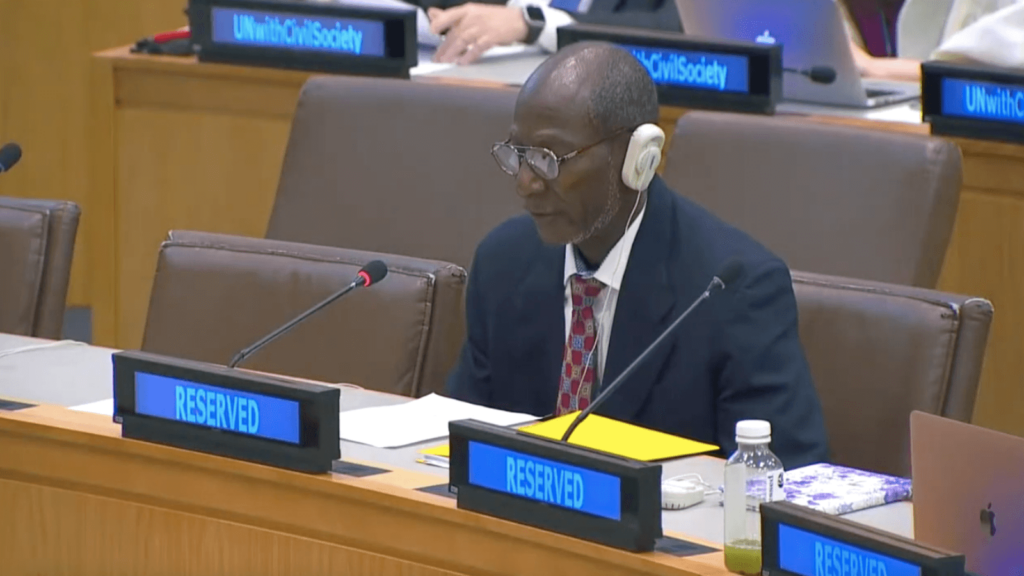Cantave Jean-Baptiste at United Nations
H.E. Csaba Kőrösi, President of the 77th session of the United Nations General Assembly, has stated it is critical for the UN to engage with civil society organizations, youth representatives, and academia to define transformative solutions for our global challenges. The April 2023 meeting of the United Nations Civil Society Townhall focused on the need for accelerated progress toward the achievements of the Sustainable Development Goals (SDGs) by 2030.

The moderated event consisted of an opening statement by the President of the General Assembly followed by three short keynote statements from civil society representatives and an interactive discussion. Cantave Jean-Baptiste, Director of Partenariat pour le Développement Local (PDL), Groundswell’s partner organization in Haiti, had the honor of delivering one of the civil society statements, focused on agroecology as a strategy to meet the SDGs in Least Develop Countries, on behalf of co-signatories: IATP, Alliance for Food Sovereignty in Africa (AFSA), Groundswell International, UBINIG, Food Information Action Network (FIAN), ROPPA, SID, SEARICE, PDL, RAPDA-Togo and Cultivate!
Watch: Cantave Jean-Baptiste at United Nations
Like many Least Developed Countries (LDCs), Haiti is facing a profound political and economic crisis with as many as 90% of rural people living below the poverty line and over 30% of the population living in extreme poverty (incomes of less than US $2.15/day or US $785/year). In 2022, the Food and Agricultural Organization (FAO) ranked Haiti in the 10 worst hunger crises in the world, with 4.3 million in need of immediate food assistance.
Over 4.8 million of Haiti’s 11.45 million population live in rural areas, and agriculture and fisheries employ half the labor force but account for less than 20 percent of GDP. The country continues to be impacted by a historical model of extractive economic and agricultural development, political and institutional instability, increasing gang violence, extreme levels of insecurity, and high vulnerability to climate change and natural disasters.
Functional governance that serves the interests of Haiti’s people is largely nonexistent. One of the necessities to overcome this crisis is transitioning from the extractive environmental and economic model that has long plagued the country to one that is regenerative and good for Haitians and their environment. As the United Nations continues and accelerates its focus on achieving SDGs by 2030, LDCs must be taken into the forefront of sustainable solutions.
As background for Cantave’s statement to the United Nations was backed up by our recently published brief on the results agroecology has produced for the people of Haiti and how that can be a model for the future. Cantave also shared his thoughts, along with Executive Director Steve Brescia, in Mongabay in March.
“Through a regenerative model of agricultural and rural development, Haiti could become ‘a positive example of how some of the most marginalized smallholder farmers in the world can replace the longstanding model of extractive agriculture with one that continuously regenerates their land, food production, rural economies, and dignity.’”
